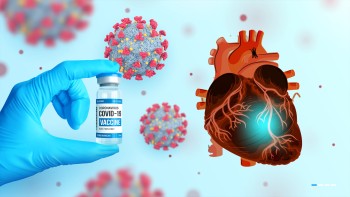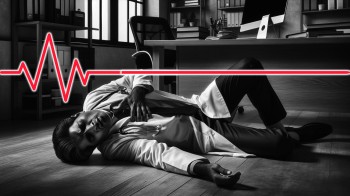A recent study published in JAMA has attempted to find out association of sleep pattern with incidents of cardiovascular diseases and stroke. In this study more than 15 thousand adults (mean age 65yrs) without heart disease or cancer were studied for 5 years to find out association of sleep pattern with cardiac events (Cardiovascular disease) and strokes.
The key observation were-
• 57.9% female and 42.1% males had persistent unfavourable sleep patterns.
• Compared with those with persistent unfavourable sleep patterns, individuals with persistent favourable sleep patterns had lower risks of incident cardiovascular disease and strokes.
Genetic risk for CVD did not modify these associations.
These findings highlight the importance of maintaining favourable sleep patterns for CVD prevention.

Prof G C Khilnani,Chairman, PSRI Institute of Pulmonary, Critical care and Sleep Medicine. Formerly, Professor and Head, Dept of Pulmonary, Critical care and Sleep Med Medicine, AIIMS, N Delhi says that Sleep duration and quality affects all walks of our life including a feeling of wellbeing during the day, work efficiency and over all conduct. A recent study concluded that those who sleep less than 5 hours and 3-4 hours have increased risk of diabetes to the tune of 16% and 41% respectively. An average of 7 hours of sleep is essential for mental, physical and metabolic recovery. With the result, reduced duration or quality has implications on both short term and long term health’ In the year 2019, Cardiovascular diseases (CVD) accounted for one-third of all deaths across globe. Hypertension, Diabetes, Obesity, cholesterol, smoking, lack of exercise and mental stress are associated with high incidence of CVD and heart attacks. This prospective, large study conducted over a period of 5 years concluded the harmful effects of insufficient and poor quality sleep.
"Over last 100 years, average sleeping time of human beings is reduced by one and a half hours. Change in life styles including mental stress, unphysiological working hours, reduced physical activity, overuse of screens (Mobile, TV, laptops etc) and stimulants ( tea, coffee, aeriated caffeinated drinks) have all added to disruption sleep. India is capital of Diabetes and also Indians get CVD ( heart attacks) 10 years earlier in age as compared to Western population. Therefore, it is important to modify our life style to prevent cardiovascular disease which affects all organs, adds Dr Khilnani.
➢ The timing of going to bed should be relatively fixed. Usually it is better to sleep before 11 pm
➢ The bed room should be quiet and without any source of light
➢ Alcohol may induce sleep but quality of sleep is poor
➢ Avoid doing heavy exercises before going to sleep
➢ Finish your dinner three hours before bed time. You may take a glass of milk or fruits before going to bed
➢ Do not watch screens (Mobile, Laptop, TV) one hour before bedtime (Do not have TV in your bed room)
➢ Consider reading book before sleeping: It helps
➢ If there is difficulty in sleeping for 20-30 minutes, don’t get disturbed and start reading some thing or take a gentle stroll
and then go back to sleep. (NEVER RESORT TO SEEING
MOBILE/LAPTOP OR TV)
➢ If you have persistent difficulty falling asleep, take a warm shower before going to bed.
➢ Regular use of sleeping pills should be avoided (Habit forming) and the same should only be taken only under medical advice.






Recent comments
Latest Comments section by users